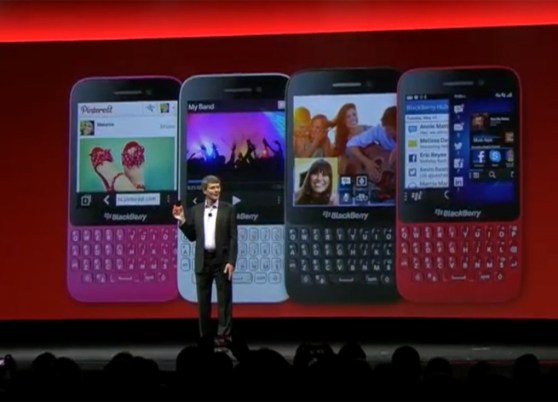BlackBerry’s decision to bring BBM to Android and iOS was, in many senses, inevitable.
The world of mobile messaging apps has changed since BlackBerry introduced BBM in 2006. While the service still has a whole bunch of users (60 million of them, by BlackBerry’s latest count), those numbers are small compared to those of, say, WhatsApp, which claims it has 200 million active users, and China’s WeChat, which claims 190 million. There’s also Kik, which recently hit 50 million users.
Those numbers should speak for themselves: The smartphone world is moving away from BBM. But don’t tell that to BlackBerry CEO Thorsten Heins, who’s arguing that the opposite is true.
“Why are we doing this now? It’s a statement of confidence. The BlackBerry 10 platform is so strong and support has been so good that the time is right for BBM to become and independent messaging solution,” Heins said, possibly out of sorts with reality.
BlackBerry’s strategy here is clear: Rather than cede the messaging app world to the likes of WhatsApp, the company is piggybacking off the marketshare success of iOS and Android, which have many more users than BlackBerry could ever hope to attract with BlackBerry 10 alone.
In fact, BlackBerry’s move isn’t very different from its decision to allow developers to port Android apps to its own smartphone platform. As an underdog, BlackBerry doesn’t have much to lose from taking these sorts of bold moves — even if they betray some of company’s current weaknesses.
Unlike the Android move, however, BlackBerry’s decision to bring BBM cross-platform comes with its own set of risks. Despite BlackBerry’s shrinking smartphone influence, BBM remains one of the central, most enticing things about owning a BlackBerry, and it’s possible that BlackBerry could cannibalize its BB10 ambitions while trying to increase its BBM user numbers.
Still, considering how successful BBM has been over the years, maybe we should give BlackBerry the benefit of the doubt. This, could after all, turn out to be one the savviest things the company ever done: While the initial set of Android and iOS BBM functionality will be limited to chat, BlackBerry also plans to adds features like screen sharing and video chat as time goes on.
Those are the sort of things that could give BlackBerry the edge over its newer competitors. While WhatsApp and company are attracting the users, it’s BlackBerry that has the experience. The question is whether experience alone will be enough.
Bringing BBM is both smart and inevitable — but it may also be happening a few years too late.


